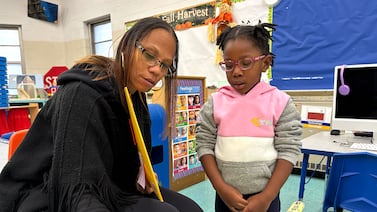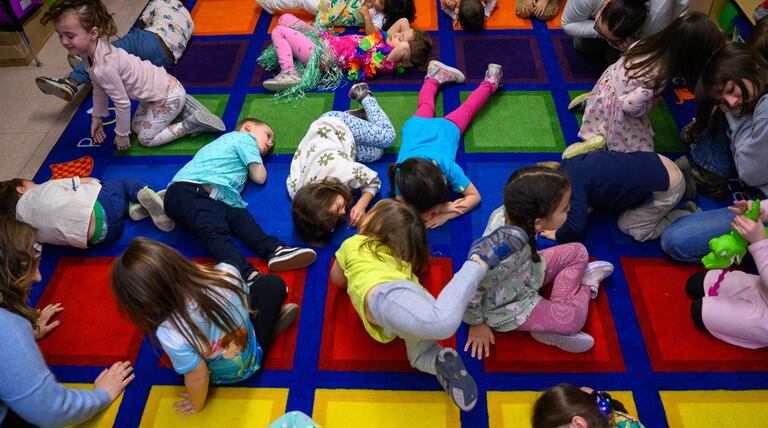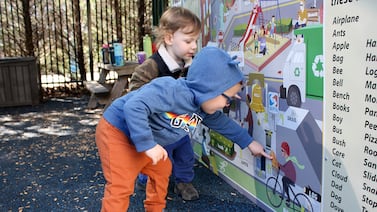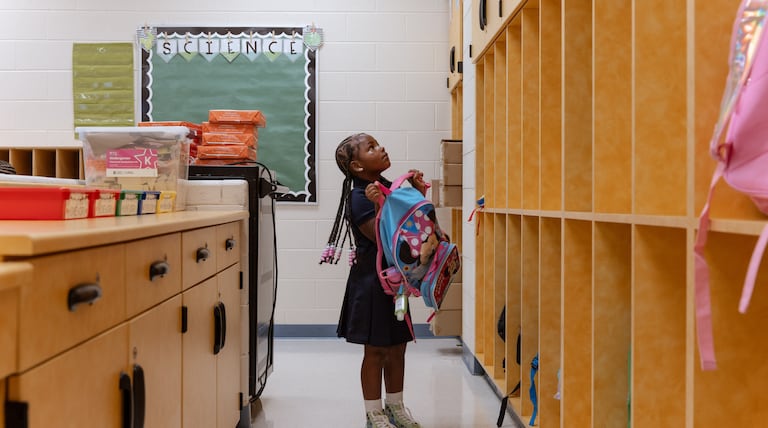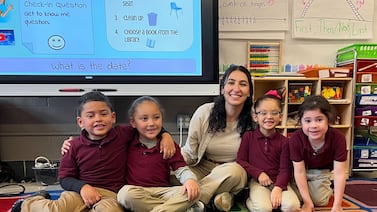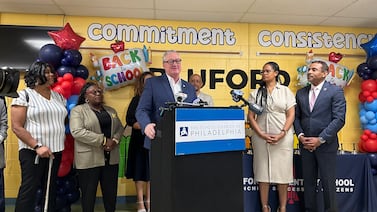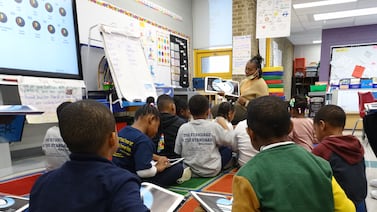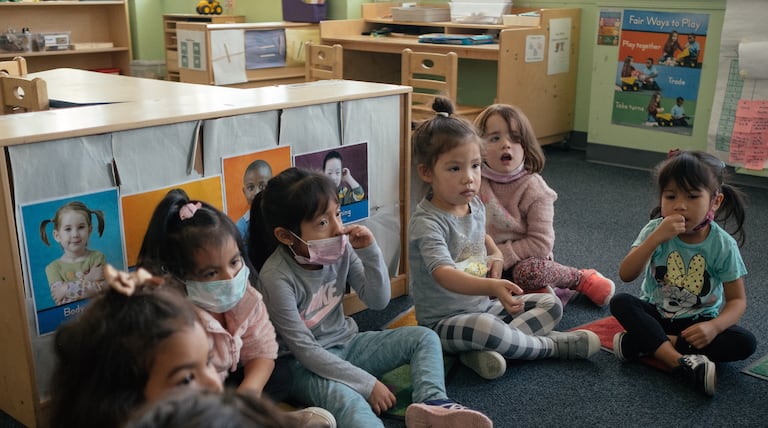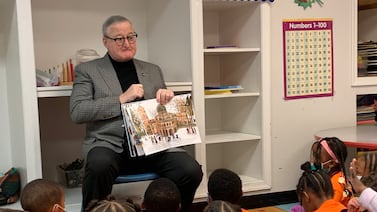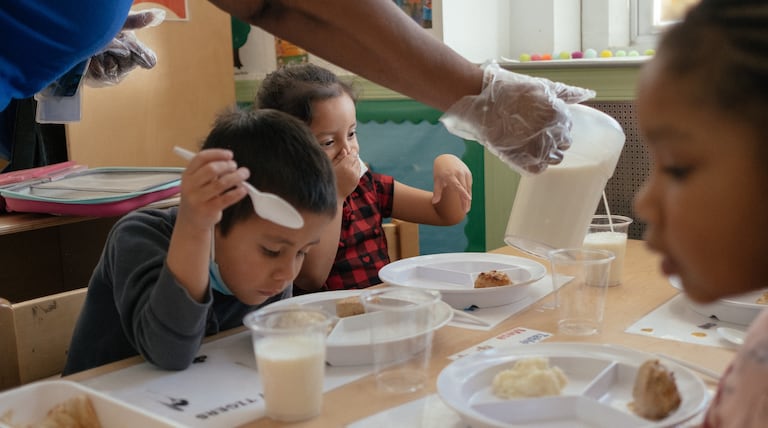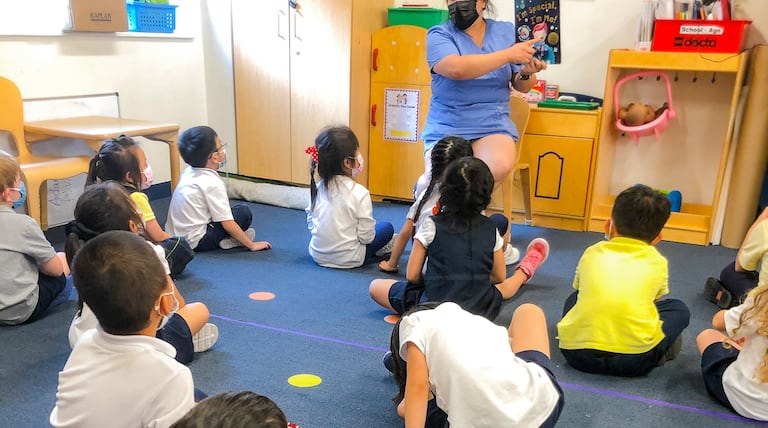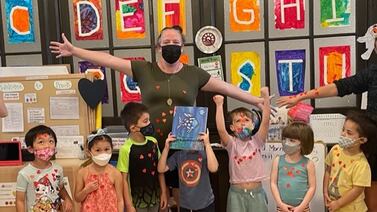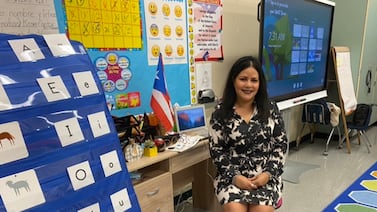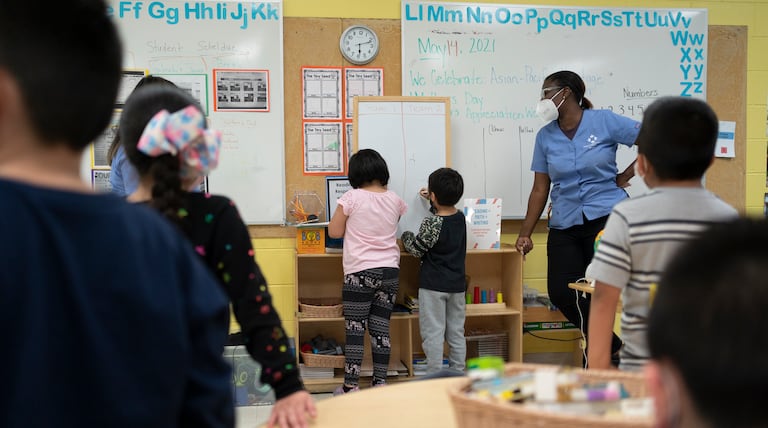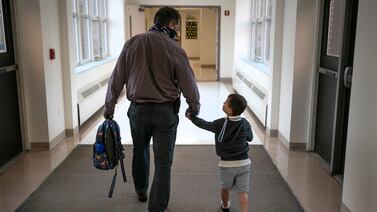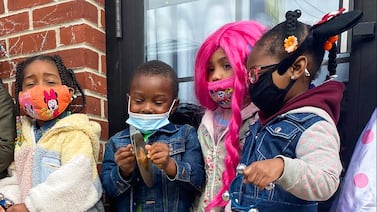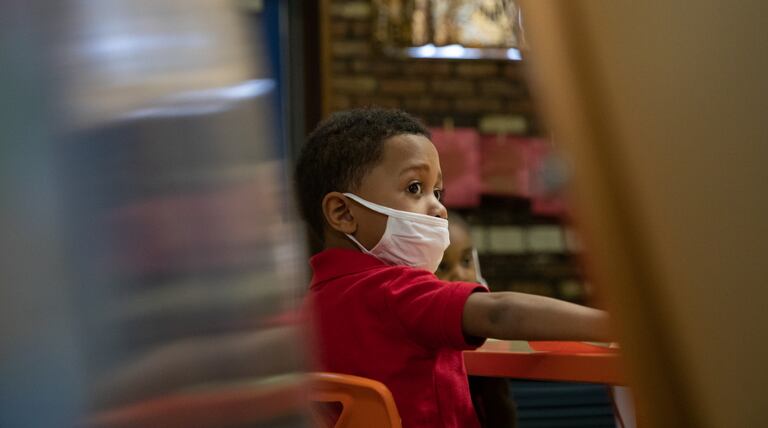Philadelphia Early Childhood Education Guide
An in-depth look at Philadelphia's early education landscape at a critical moment
For years, Kahn-Tineta Smith dreamed of becoming a teacher. Now she’s navigating small-group instruction, kids tossing Cheerios on the floor, and all that comes with her job.
Some Pennsylvania parents are being priced out of child care subsidies by small raises — including child care workers.
This year, the city has a new universal pre-K application, but the early childhood field is still recovering from the pandemic.
Murals, games, and a ‘story wheel’ are among the strategies researchers say can promote academic achievement and child development.
Educator Sarah Budlow said the more she learned about the impact of a kid's school experience on their life and their future, the more she wanted to become a teacher.
Kenney, who will step aside early next year, hopes PHLpreK will keep expanding after mayor-elect Cherelle Parker takes over.
Philadelphia offers free pre-K, and all 3- and 4-year-olds in the city can apply. Here’s everything you need to know about the process and some obstacles you may face.
The guide also includes a teacher’s perspective on helping students successfully go from home to school environments after COVID’s disruptions.
Advocates and others say the city’s “Read by 4th” campaign and other efforts have built a strong foundation.
A significant number of Philadelphia’s children struggle to get adequate and consistent meals, recent data show.
“We understand that if students see themselves valued, reflected, and honored in books and learning experiences that we provide them, they’re more likely to learn.”
This veteran preschool teacher spoke with Chalkbeat Philadelphia about teaching preschoolers to share, common misconceptions about early learners, and more.
Olga Rosario, is a dual-language kindergarten teacher at Lewis Elkin Elementary School in Kensington. This school year, she is closely observing the development of early learners .
Many educators and advocates agree that parental involvement is key in early learners’ development — even more so after nearly two years of disrupted learning.
Preschool suspensions and expulsions in public schools have decreased in the last several years, but disparities based on race, gender and disability status persist.
The largest of Pennsylvania’s state-funded preschool programs serves only a fraction of the state’s nearly 300,000 3- and 4-year-olds.

